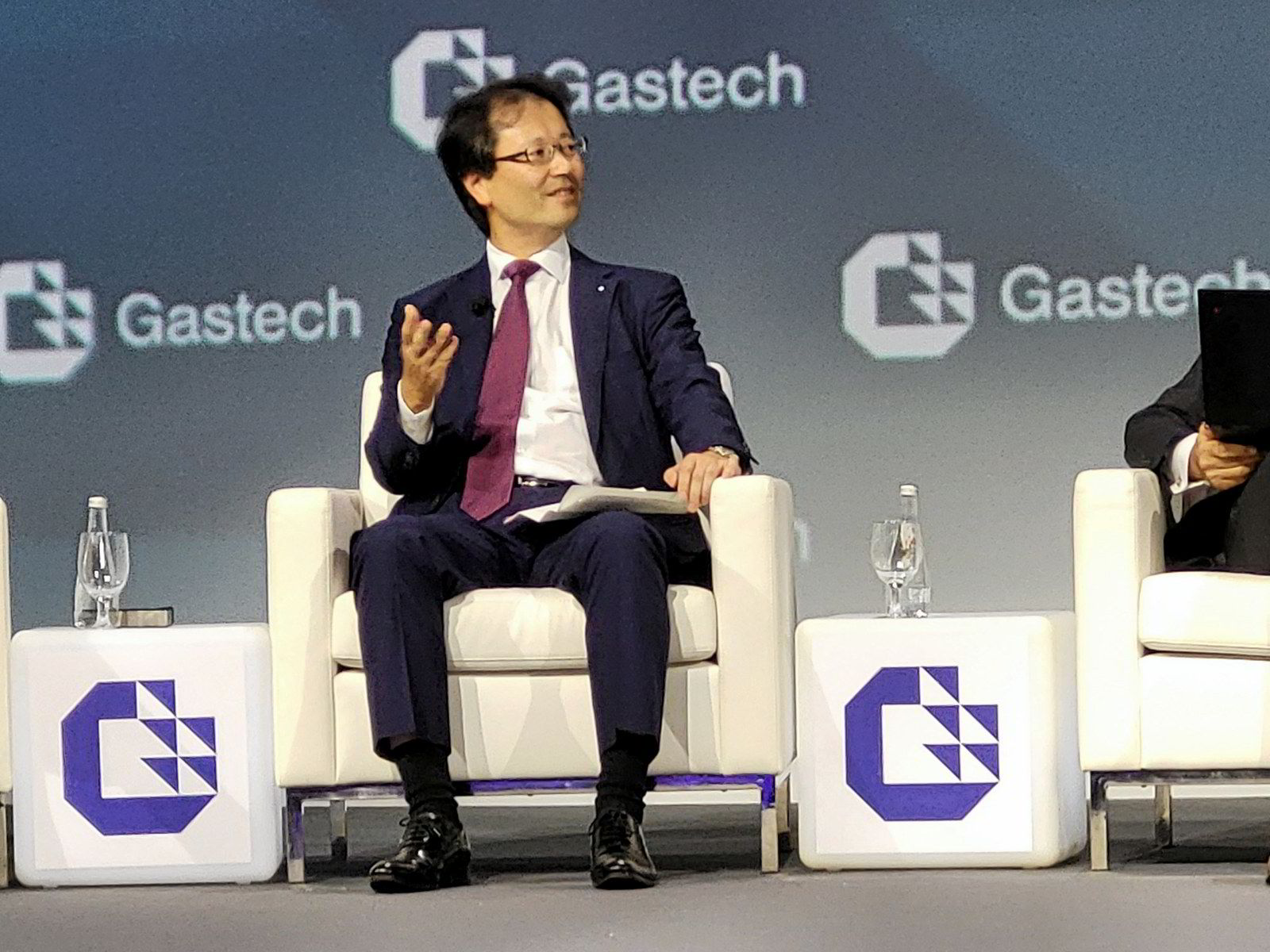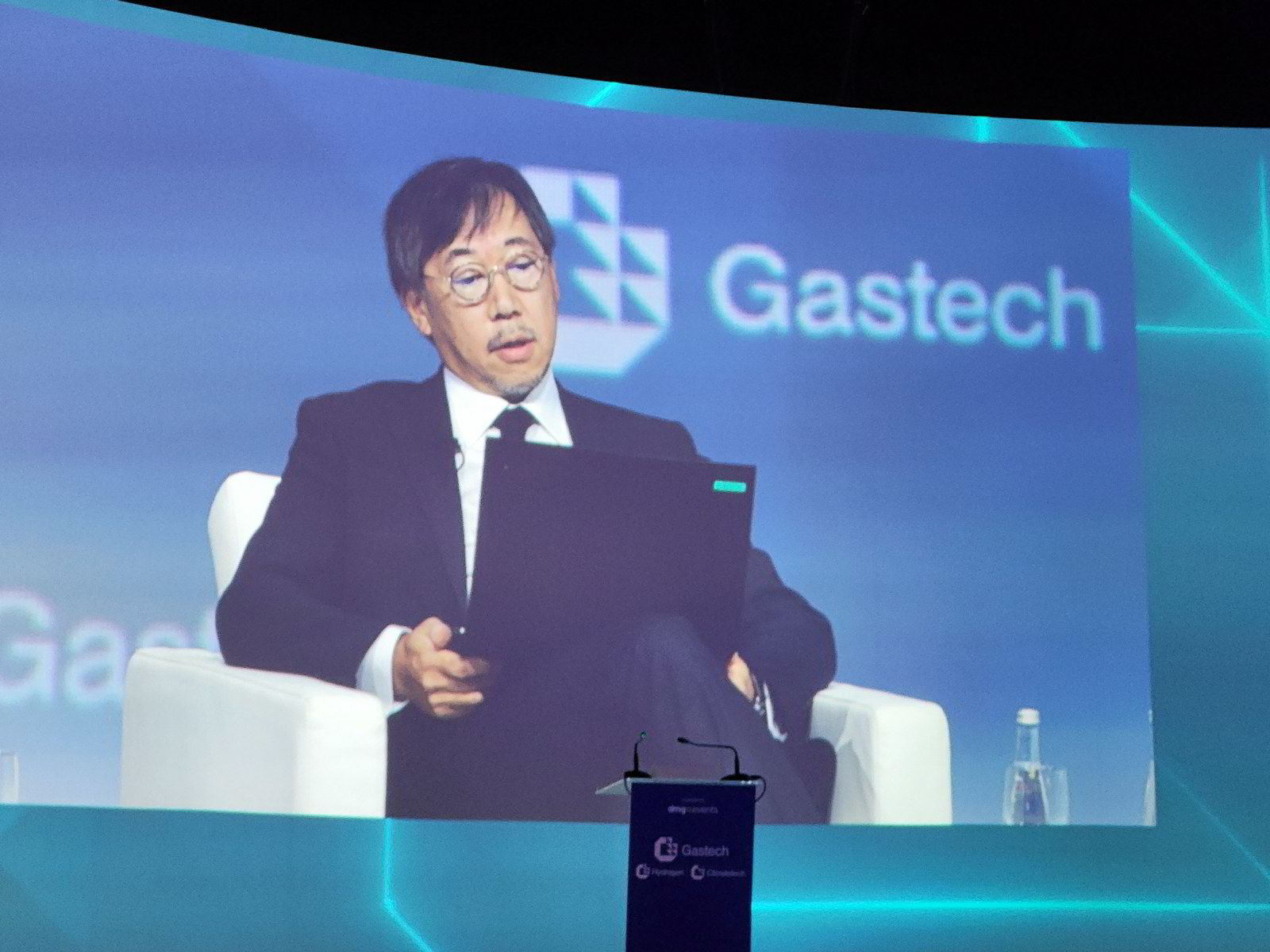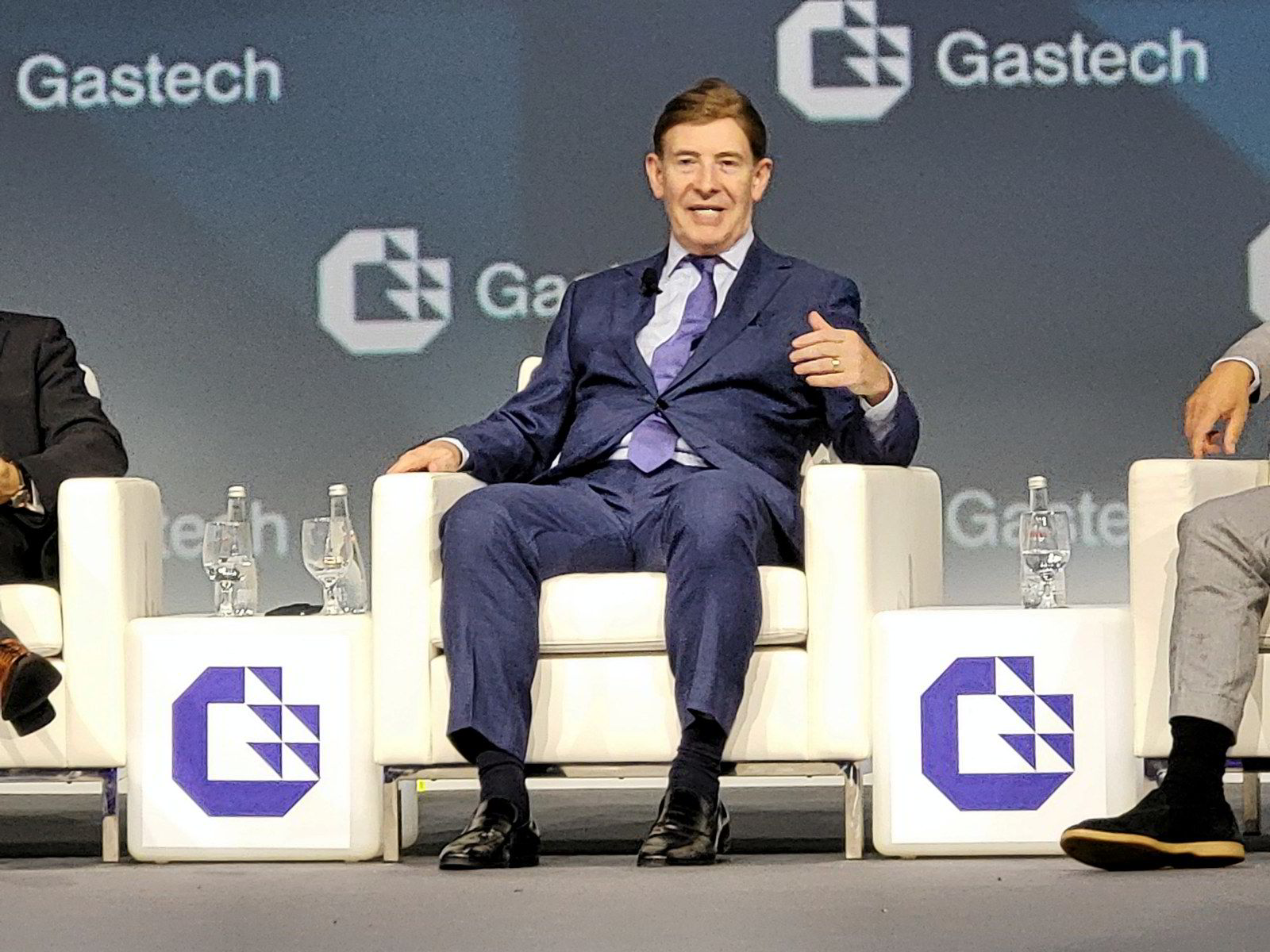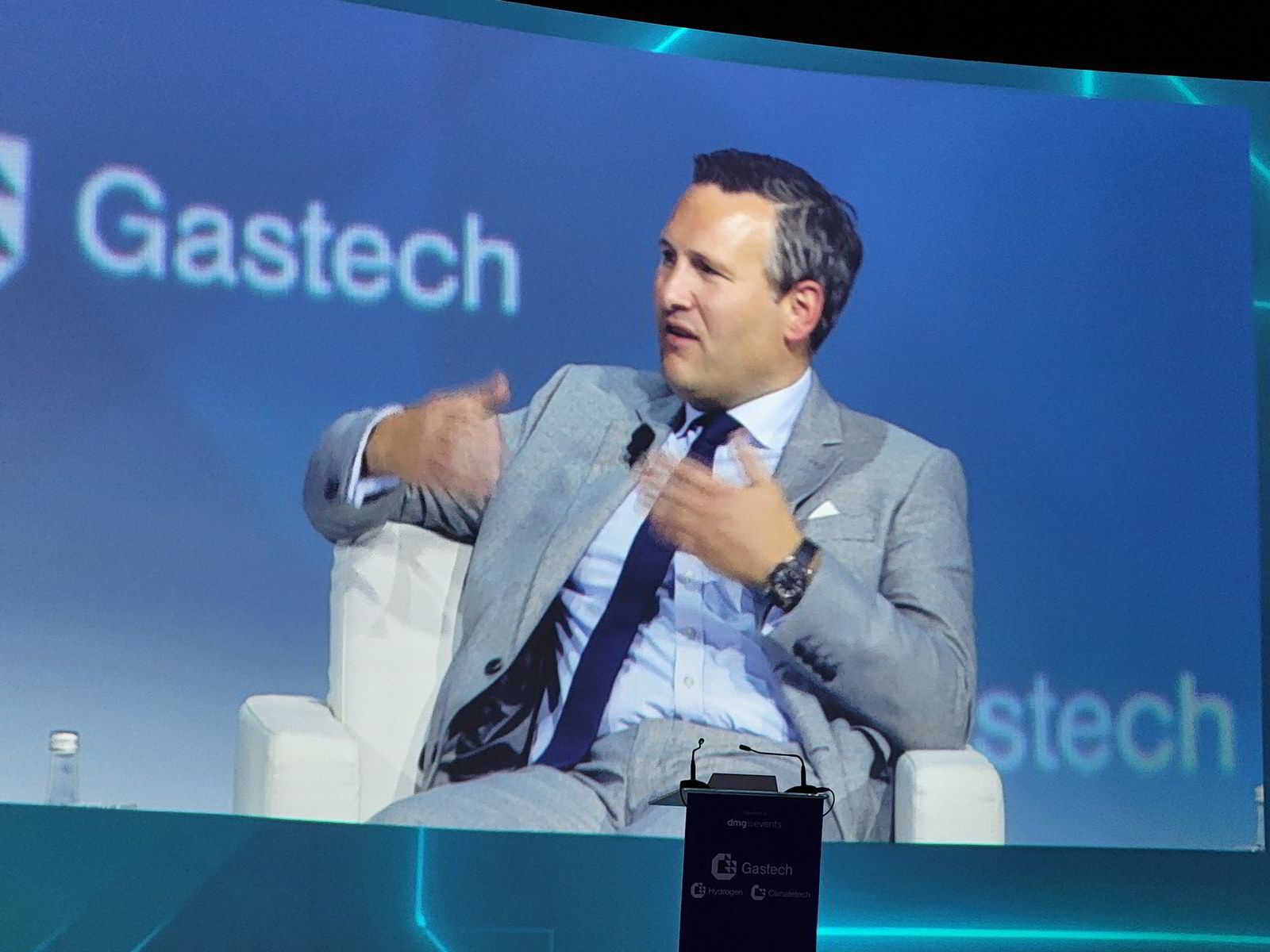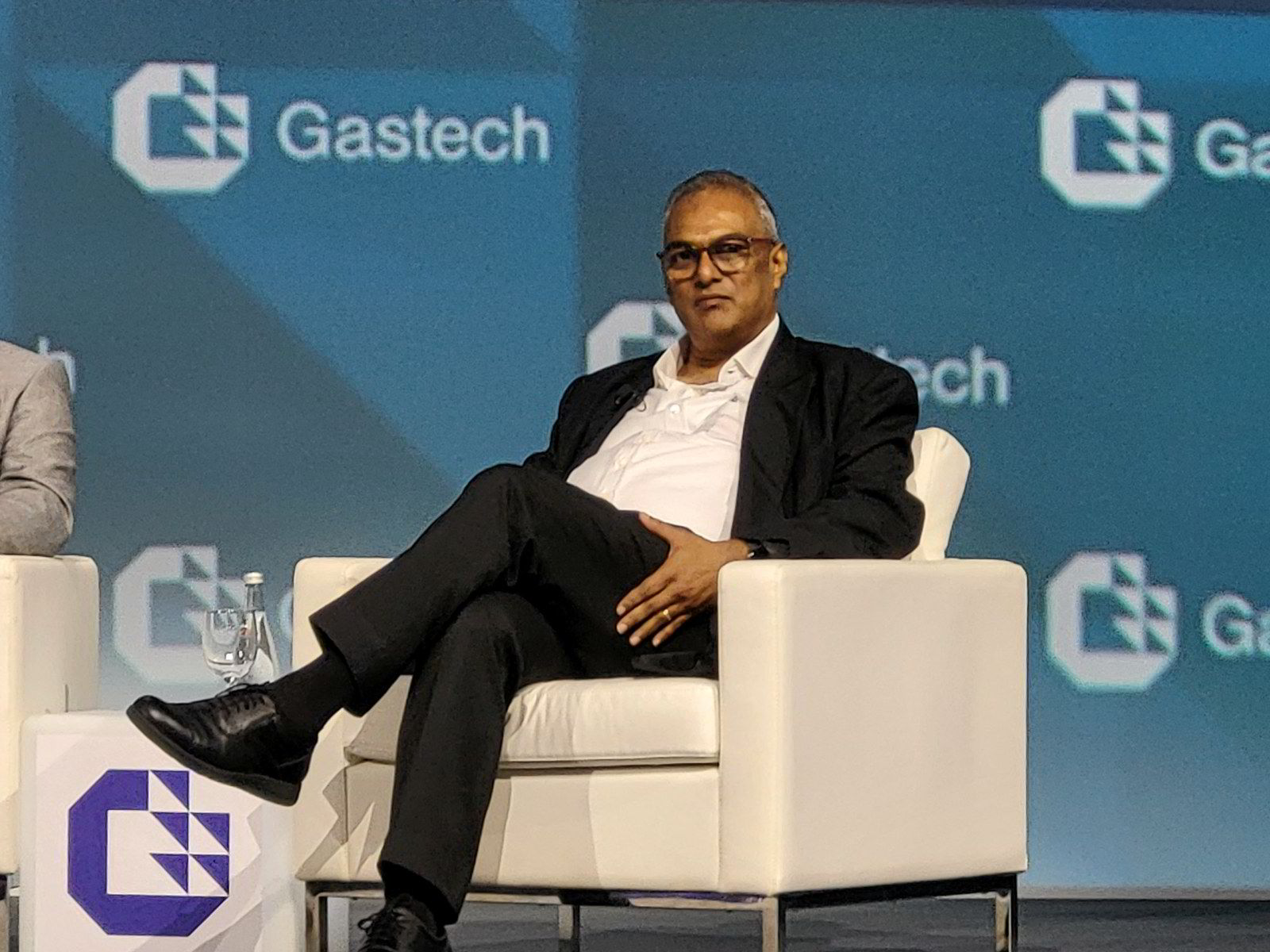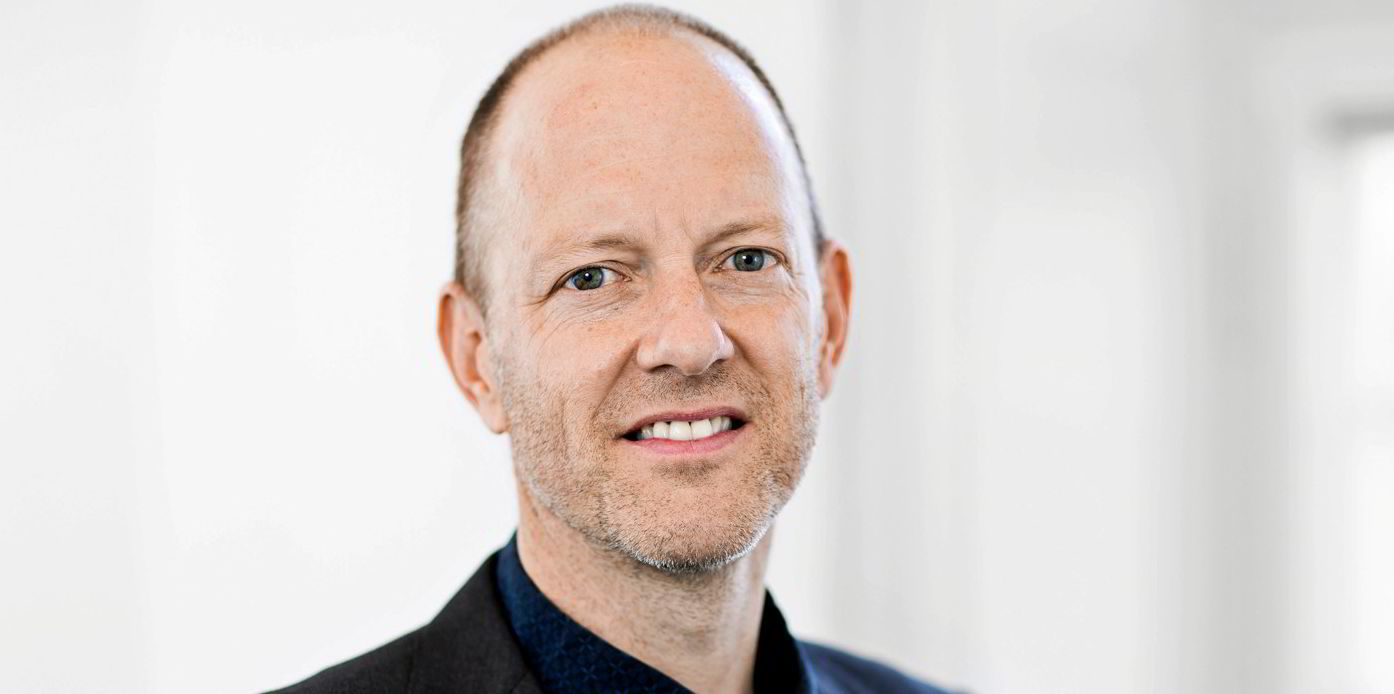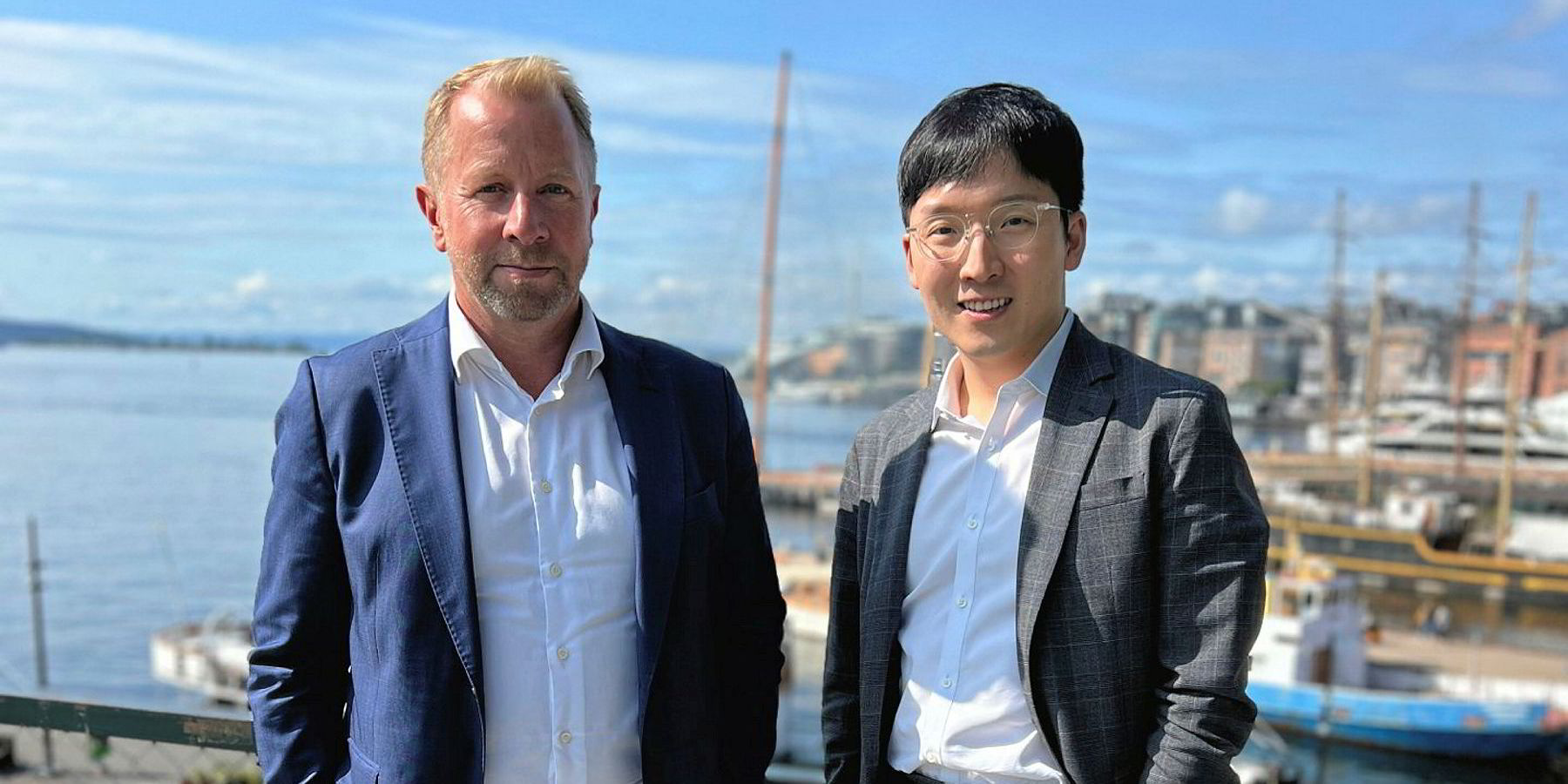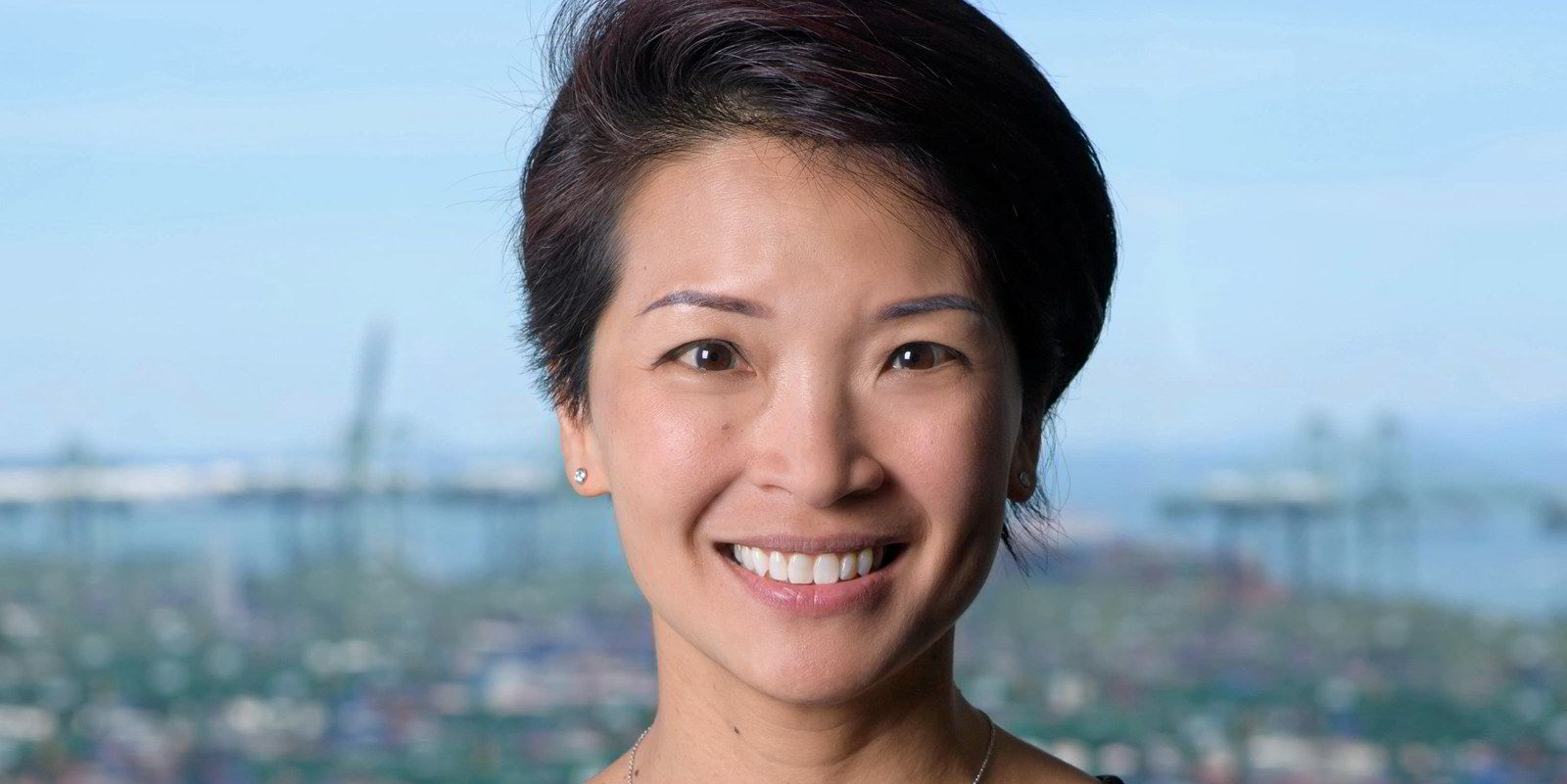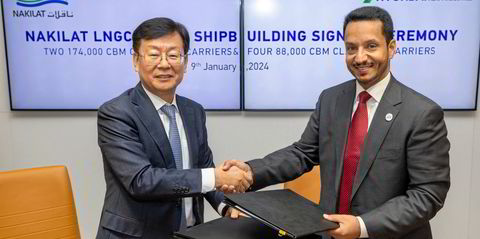Japanese shipowners are actively moving towards ammonia as a marine fuel.
Speaking on a panel on decarbonising shipping at the Gastech 2023 meeting in Singapore NYK managing executive officer and chief executive of the energy division Hironobu Watanabe said the company is developing an ammonia carrier along with its partners.
He said this should be ammonia-fuelled but said the industry needs a supply chain for ammonia which is not yet in place as it is for LNG. “This will be a challenge,” he said.
Watanabe said he would like to “promote ammonia”.
“We are now thinking of ammonia as among the good options for zero emission fuels,” he said.
Mitsui OSK Lines executive officer for the marine fuel GX division Kazuhiro Takahashi agreed.
He said there is a need for a portfolio of fuels for decarbonisation. But he said MOL is currently moving forward on the transition to LNG and methanol
“In future definitely ammonia will be one of the major options as an alternative fuel,” Takahashi said.
Asked by moderator Wood Mackenzie chairman and chief analyst Simon Flowers if they were concerned that the rest of the world was not backing ammonia in such a clear way, Takahashi said: “Yes.”
Adnoc Logistics & Services senior vice president for corporate strategy & business development Justin Murphy said the parent group would export 5 to 6 million tonnes per annum (mtpa) of methanol and ammonia by 2026 and 1 mtpa of green hydrogen by 2030.
He said the best way forward for the company is “practical experience” on fuelling, adding that all the newbuildings the company orders from now on will be dual-, if not tri-fuelled vessels.
Flex LNG and Avance Gas chief executive Oystein Kalleklev said it is getting more difficult to decarbonise as many of the easier steps have been taken.
He said on Avance's LPG ships it is fairly easy to add ammonia.
But Kalleklev said ammonia is not easy to run as a fuel as it is highly toxic, and corrosive and needs large amounts of sustainable pilot fuel to ignite it.
“For sure this transition is not going to be cheap,” he said, adding that the preference would be for a global carbon tax rather than this “spaghetti bowl of IMO [the International Maritime Organization] regulations which are just confusing everybody and making it harder to invest”.
Global Centre for Maritime Decarbonisation (GCMD) Sanjay Kuttan reminded that there were initial concerns about the use of LNG as a fuel but the industry has learned how to manage.
“We will do the same thing with ammonia,” he said. “We respect the molecule. We know it is toxic.”
He said ammonia is not a new molecule in the industrial sector and the safety processes have been engineered.
“If it is in its essence a fuel that will decarbonise the shipping industry then we must find a solution,” Kuttan said. “I believe it will happen. It will just take some time to get all those pieces together.”
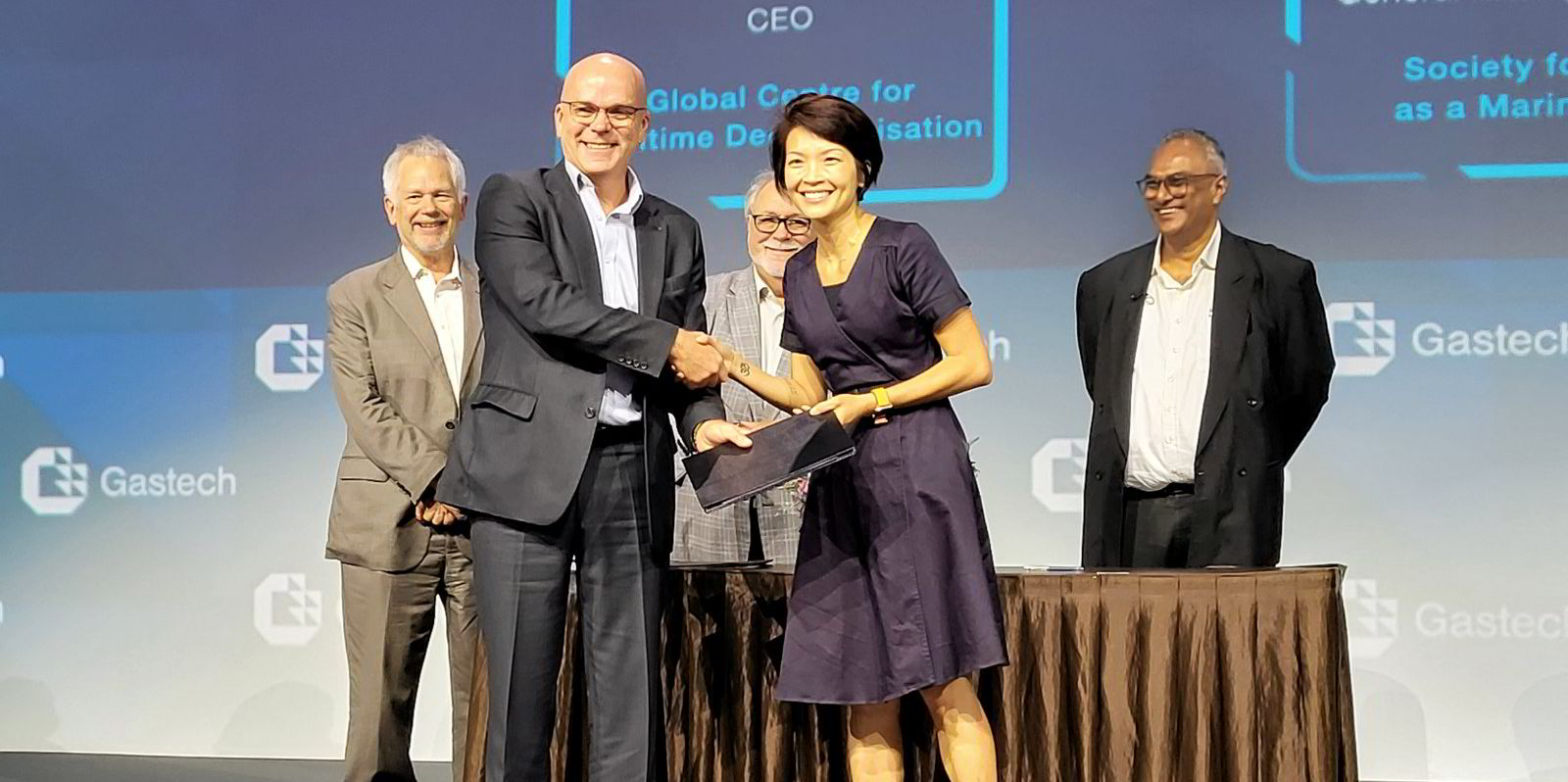
After the panel session, GCMD chief executive Lynn Loo and the Society of Gas as a Marine Fuel general manager and chief operating officer Mark Bell inked a memorandum of understanding to work together on ammonia fuelling.
Bell said the pair will work together to produce ammonia bunkering guidelines.
Loo said the work will follow on from GCMD’s safety study on ammonia and expressed the hope that this can feed into and accelerate the conversations at SGMF.
She said there would also be pilots and the findings from these will help accelerate the guidelines.
Bell highlighted that SGMF is celebrating its 10-year anniversary in 2023. The Society kicked off by working on guidelines for LNG as a fuel. He said it will certainly not be 10 years to get the guidelines out for the other alternative fuels.
“We are pleased to be filling in the gaps,” Bell said, “and putting safety first”.
